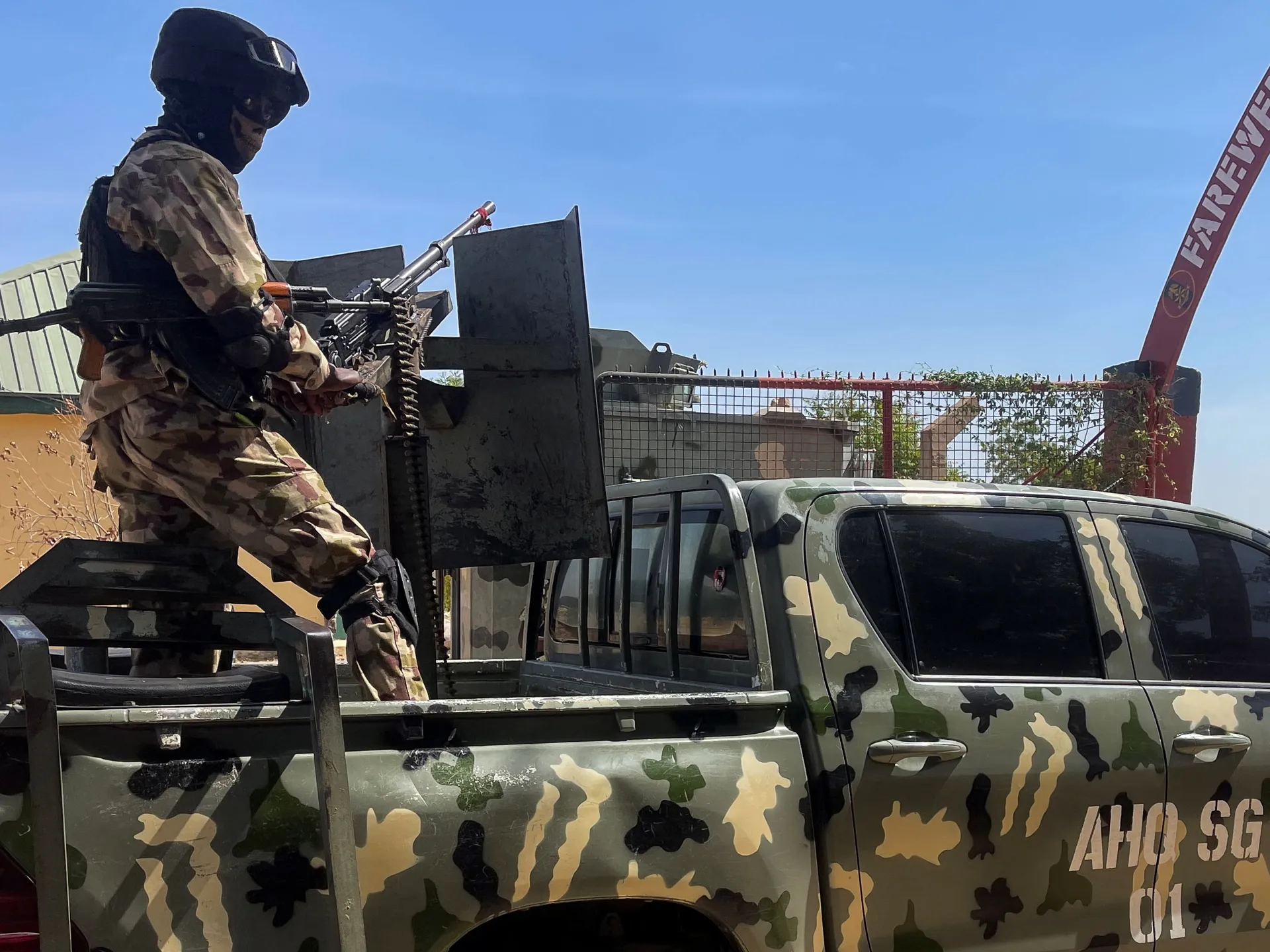US deploys 100 soldiers to Nigeria as attacks by armed groups surge | Religion News
The US soldiers will not have a combat role and are to operate under the full command authority of Nigeria’s military.
Published On 16 Feb 2026
The United States has sent 100 military personnel to northern Nigeria to train and advise local forces, as deadly threats rise from armed groups such as Boko Haram and ISIL (ISIS)-linked factions.
Samaila Uba, Nigeria’s Defence Headquarters spokesman, confirmed the US troops’ arrival in the northeastern area of Bauchi on Monday.
Recommended Stories
list of 4 itemsend of list
He said they will provide “technical support” and “intelligence sharing” to help target and defeat “terrorist organisations”. The US also sent “associated equipment” to support the mission.
Uba stressed that the US soldiers will not play a direct combat role, but will share technical expertise under the full command authority of Nigerian forces.
“The armed forces of Nigeria remain fully committed to degrading and defeating terrorist organisations that threaten the country’s sovereignty, national security, and the safety of its citizens,” said the military spokesman in comments carried by Nigeria’s Premium Times newspaper.
Last weekend, gunmen on motorcycles rampaged through three villages in northern Nigeria, killing at least 46 people and abducting many others. The bloodiest attack happened in the village of Konkoso, in Niger State, where at least 38 people were shot dead or had their throats slit.
Protracted fight
The US deployment follows an easing of tensions that flared between Washington and Nigeria late last year, when US President Donald Trump accused the country of failing to stop killings against Christians and threatened to intervene militarily.
The Nigerian government has rejected Trump’s accusation, and analysts say people across all faiths, not just Christians, are victims of armed groups’ violence
In December, US forces launched air strikes on ISIL-affiliated fighters in the country’s northwest. Last month, following discussions with Nigerian authorities in Abuja, the head of US Africa Command confirmed that a small team of US military officers were in Nigeria, focused on intelligence support.
Nigeria is facing a protracted fight with dozens of local armed groups increasingly battling for turf, including the homegrown Boko Haram and its breakaway faction, the ISIL affiliate in West Africa Province (ISWAP).
There is also the ISIL-linked Lakurawa, as well as other “bandit” groups that specialise in kidnapping for ransom and illegal mining.
Recently, the crisis worsened to include other fighters from the neighbouring Sahel region, including the Jama’at Nusrat al-Islam wal-Muslimin, which claimed its first attack on Nigerian soil last year.
Several thousand people in Nigeria have been killed, according to data from the United Nations.
While Christians have been among those targeted, analysts and residents say the majority of victims of the armed groups are Muslims in the Muslim-dominated north, where most attacks occur.
Nigeria’s 240 million people are evenly split between Christians, mainly in the south, and Muslims, mostly in the north.
